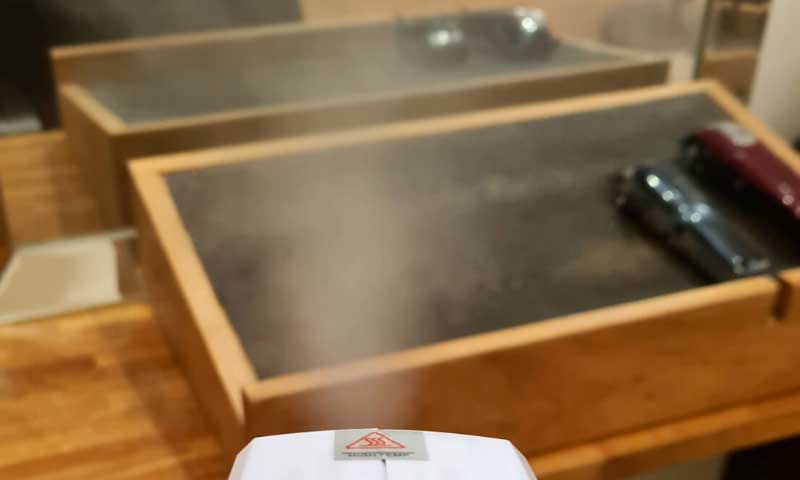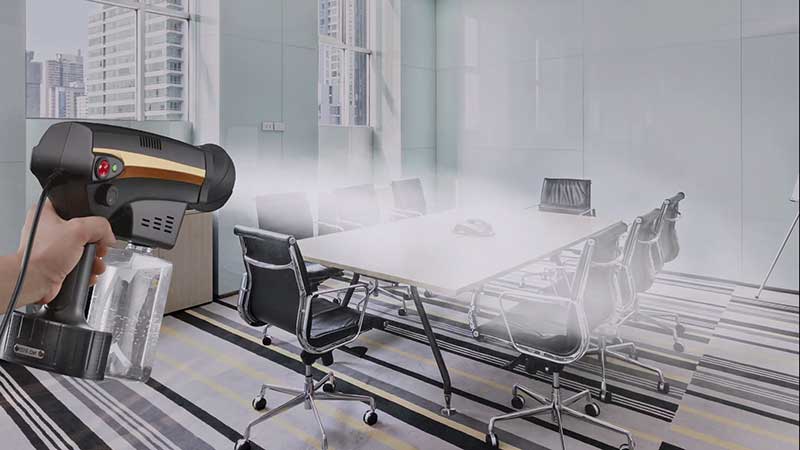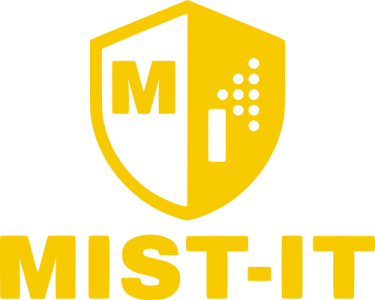With new measures required for cleaning sets and locations, we sat down with Jeremy Bull from MIST-IT to talk through what the company does and how sanitising and fogging works when cleaning rooms/buildings and locations.

Who are you and what do you do?
My name is Jeremy and I run a sanitisation and fogging business in Ipswich, Suffolk.
Fogging & sanitising is a specialist service and it is vitally important to understand the science behind firstly how the equipment works and secondly making a good choice about the chemicals that you intend to use.
How fogging works
The fogger super heats and atomises a liquid chemical into tiny microscopic nano particles vapour (0.04µm). These nano particles are then aerosolised and given a negative charge. We also add in 30 million negatively charged ions into the jet stream.
The reason we add so many negatively charged particles is because viruses and bacteria are positively charged. So using the physics principle that opposites attract means that the particles that we are spraying are atomically drawn to the virus that we want to destroy.
How the virus is killed
Once the virus has been attached to our fog it then needs to be made inert which is actually quite a simple process.
Once the particles are attached, the chlorine from the chemical liquid breaks down the RNA protein shell of the virus, this is turn then allows oxygen to penetrate it and this is why it deactivates the virus and kills it.
The process of oxidisation is the chemical reaction is the key and we make sure that we attract all the virus and bacteria particles on all surfaces and those that are also suspended in the air to kill them. Our system uses the virus Hunt and Destroy principle!
What services do you offer for incoming productions to the region?
Our service is available to all productions working in Suffolk, Norfolk & Essex and we can come and sanitise a set, a room, multiple rooms or even a full building.
We can also sanitise the inside of any vehicles that are being used as well as being able to safely fog any electrical equipment and any fabric surface. This means that if any bacteria or viruses have been transferred to your equipment/props while in storage/transit we can mitigate any risk of a nasty virus being caught or transferred.
What services do you offer?
There are two main areas of service that MIST-IT offers;
1) Sanitisation of all Frequently Touched Objects (FTOs)
2) Sanitisation of the full volume of air inside a room
We break these into two separate categories for a very good reason. Firstly whilst dry fogging onto surfaces (FTOs) we want a slightly bigger sized particle to be sprayed so that it is heavier and lands onto the surface to ensures full and complete coverage.
Second we then start fogging using the smallest sized particles starting from ceiling height and then walk through the room. The fact that the particles are so small means that they will hang in the air for a much longer time and will consequently attract more viruses that are airborne. Also any particles that haven’t been attached to a virus will then land on the FTOs giving a second layer of sanitisation. This is the best method for sanitising to ensure maximum coverage and protection.
Once a room has been sanitised it needs to be left for approximately 30-45 mins to settle and is then perfectly safe to re-enter.

What experience do you have in this sort of sanitisation?
We have sanitised areas as small as the inside of cars, going up to larger houses and also into business premises here in Suffolk.
The chemicals we use have been carefully chosen to get the best sanitising results.
I use Hypochlorous Acid (HOCl) which is a non-toxic, non-corrosive, child and pet safe chlorine based chemical. This means that there is no chance of any harm to be caused to any person or animal in the vicinity after the sanitisation process has taken place.
There is a very slight hint of chlorine left in the air after sanitising a room that then dissipates and then the area is left odour free as a result.

Screen Suffolk recommends all incoming crew take the free Coronavirus Basic Awareness on Production course which is linked to on our Covid-19 page.
